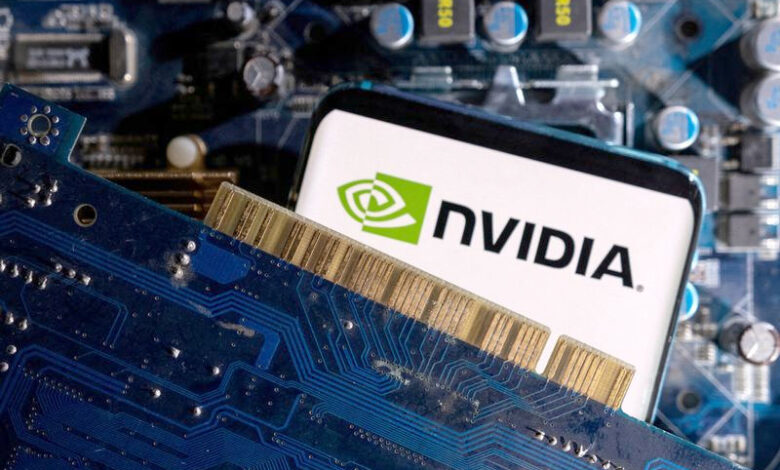“U.S. Plays Cat-and-Mouse with Nvidia: Chinese Media”

The imposition of U.S. restrictions on China has sparked a strategic maneuvering scenario, resembling a “catch me if you can” game involving U.S. chip giant Nvidia and other companies, according to the Global Times newspaper. This development, impacting the interests of both nations, is anticipated to expedite Chinese innovation. Nvidia’s plan to launch new artificial intelligence chips for the Chinese market, just weeks after tightened U.S. regulations on high-end AI chip sales to China, was reported by the chip industry newsletter SemiAnalysis. The newspaper characterized the ongoing interactions between Nvidia and the U.S. government as a tale of a high-tech enterprise engaged in legitimate business but facing significant political interference in free trade. Describing the situation as not only lacking humor but also somewhat melancholic for commercial entities, the commentary highlighted the detrimental effects of U.S. chip restrictions on both China and the United States. The Global Times emphasized the intimidating impact of the U.S. government’s actions on normal and legitimate transactions, creating a tense market atmosphere. Nvidia’s disclosure about the impediments resulting from new U.S. export restrictions led to the blocking of sales for two high-end AI chips, A800 and H800, designed for the Chinese market in the previous year to comply with earlier export rules. The updated regulations impose a limit on the computing power a chip can incorporate into a small size, introducing a “grey zone” wherein chips may still be allowed to ship to China but will require licensing. According to SemiAnalysis, the anticipated new Nvidia chips, named HGX H20, L20 PCIe, and L2 PCIe, may be announced on Nov. 16. While incorporating most of Nvidia’s latest features, these chips have undergone some reduction in computing power, as reported by the newsletter. The Global Times highlighted U.S. companies actively seeking “workarounds” to adhere to the regulations. It speculated that as long as Washington persists in restricting China, the game of evasion will persist. The newspaper suggested that the U.S.’ attempts to close loopholes may never be entirely successful, resulting in a situation akin to pressing one end of the gourd only to make the other end float up. This, in turn, is expected to compel and hasten the process of independent innovation in high-tech industries in China.





